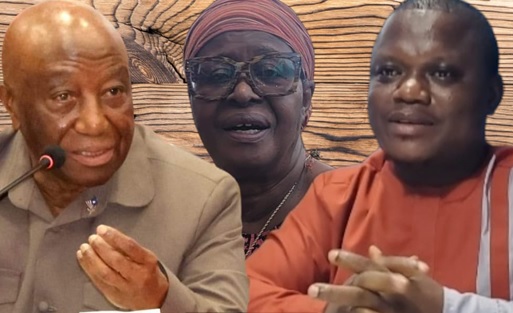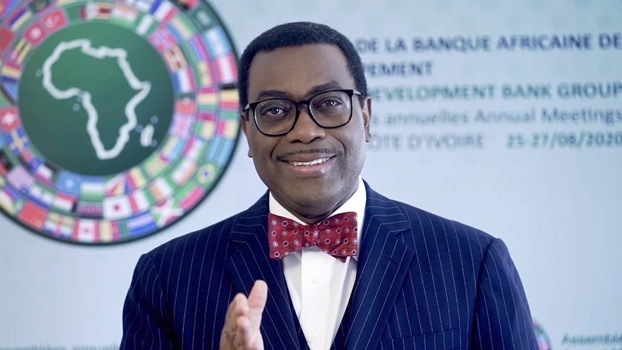MONROVIA, LIBERIA – Concerns about accountability and transparency are mounting just nearly five months into the Unity Party government under President Joseph Nyuma Boakai. Despite his strong campaign emphasis on these principles during the 2023 presidential election, recent events suggest that President Boakai’s promises might be falling short.
The Executive Mansion today, Saturday, June 1, 2024, issued a press release in which President Boakai commended Honorable Miatta Fahnbulleh, Chairperson of the 2024 Inaugural Committee, and her team for their “selfless service and meticulous planning” of the inaugural activities. However, this praise has drawn sharp criticism from key figures in Liberia’s integrity community.
Anderson D. Miamen, head of the Center for Transparency and Accountability in Liberia (CENTAL), issued a scathing statement questioning the President’s judgment. “Really? President Boakai expresses ‘explicit confidence’ in the Miatta Fahnbulleh Committee?” Miamen wrote. “Is he truly expressing confidence in Madam Miatta Fahnbulleh and her Inauguration Committee, given the numerous issues surrounding the inauguration? Has the President already begun to risk his credibility for his associates?”
Miamen’s critique further challenges the President’s assertion of the committee’s meticulousness. He pointed out the embarrassing incident during the inauguration where “the President nearly fainted and could not continue or complete his speech.” This incident has raised questions about the management and transparency of the event, particularly concerning the over US$300,000 allocated for district-level inauguration activities, whose source remains undisclosed.
During the inauguration process in January, Madam Fahnbulleh faced significant allegations of corruption involving the US$650,000 received to manage the Boakai-Koung inauguration. Several accounts revealed that her mismanagement of resources led to President Boakai’s heat exhaustion during his inaugural speech, resulting in other casualties at the ceremony.
Chris Wolo publicly rebuked Fahnbulleh’s claim that he received US$60,000 for entertainment, stating that she only provided US$10,000 instead of the claimed amount. The 2024 inauguration, deemed one of the worst in Liberian history, not only embarrassed the country but also led to the President almost collapsing due to a lack of drinking water, ventilators, and proper protocol management.
The Internal Audit Agency (IAA) has announced a Special Audit of the 2024 Inaugural activities managed by the Joint Presidential Transitional Team (JPTT). David Kemah, Director General of the IAA, indicated that this audit is consistent with the IAA’s mandate to review government and donor-funded activities, aiming to demonstrate the new government’s commitment to accountability.
Kemah stated that the Ministry of Foreign Affairs has been asked to provide relevant documents to review the financial and operational activities of the transition budget. However, the handling of these funds has lacked transparency, fueling suspicions of potential mismanagement. Critics argue that if the Unity Party cannot account for inauguration funds, it casts doubt on their ability to manage more significant national projects. This concern is amplified by the lack of clear financial reporting and accountability measures, which were hallmarks of Boakai’s campaign promises.
Furthermore, the President’s swift commendation of the committee, despite these glaring issues, suggests a worrying trend of overlooking accountability for political convenience. Miamen’s statement underscores a broader frustration within civil society about the administration’s apparent disregard for transparency.
Public trust in the government is at stake. For a leader who campaigned on a platform of integrity and reform, Boakai’s current trajectory threatens to undermine his credibility. The administration’s response to these criticisms will be crucial in determining whether they can regain the confidence of the Liberian people.
The controversy surrounding the inauguration funds also highlights systemic issues within the government’s financial management practices. Without robust oversight mechanisms, there is a risk that public funds will continue to be mishandled, perpetuating a cycle of corruption and inefficiency.
Moreover, this situation casts a shadow over other key initiatives announced by the government. If the administration cannot demonstrate transparency and accountability in relatively small matters, it raises concerns about their capacity to handle more complex and significant projects, such as the Liberty Corridor or the East Africa standard gauge railway.
The Executive Mansion’s press release reiterated President Boakai’s utmost confidence in the integrity of Madam Fahnbulleh, describing her as a national icon. However, this endorsement seems premature and ill-advised given the current controversies. It sends a message that loyalty and political connections are valued over competence and accountability.
The lack of a thorough, independent investigation into the inauguration funds is a missed opportunity for the administration to prove its commitment to transparency. Instead, the hasty commendation of the committee only deepens public skepticism and cynicism.
The administration’s initial handling of this issue may set a precedent for how future financial irregularities are addressed—or ignored. If President Boakai and his team are serious about reform, they must take immediate, concrete steps to address these concerns and demonstrate that no one is above scrutiny.
In conclusion, while the commendation of the Inaugural Committee by President Boakai aims to project confidence and solidarity, it inadvertently highlights significant lapses in transparency and accountability. The administration’s credibility hinges on its willingness to confront these issues head-on and make necessary reforms to restore public trust.







